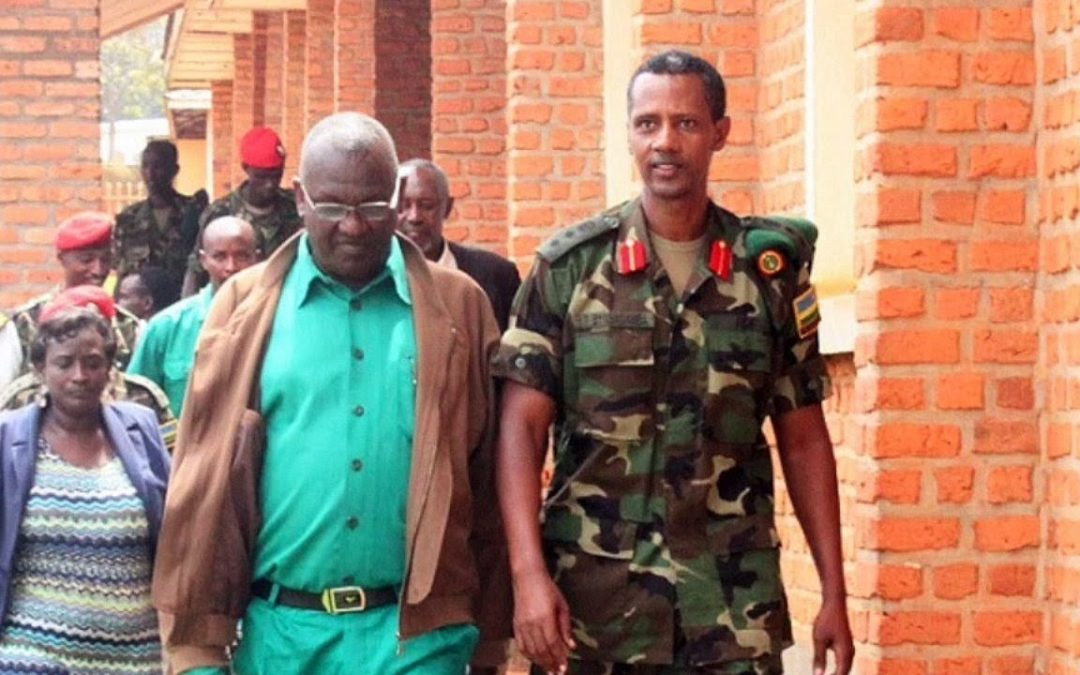One of the darkest periods in human history began twenty-five years ago this month. Over a 100 day period, between 500,000 and 1,000,000 Rwandans were killed in an organized campaign of mass slaughter. The terrible loss of life was compounded by the international community’s abject failure in providing assistance in ending the bloodshed.
In the nearly three decades since the tragic event, Rwanda has made astonishing progress, not only in reconciliation and accountability, but also in the social and economic spheres. The government has made improvements to health care, boosted agricultural outputs, promoted investment, and increased women’s participation in politics.
Distressingly, this transformation is tarnished by an increasingly grim outlook for civil and political rights in the country; in the last few years numerous domestic and international human rights organizations have issued warnings that President Kagame has become more authoritarian and less tolerant of criticism. In order to curb dissent the government blocks access to news service and websites based abroad, monitors social media, permits authorities to hack telecommunication networks, maintains an onerous registration and reporting regime for nongovernmental organizations, allows extrajudicial executions of petty offenders, and imprisons government critics.
One consist target of government reprisals are individuals who have criticized President Kagame or openly challenged his administration. In the past several years, numerous opposition leaders have been arbitrarily arrested and sentenced to long prison terms. Moreover, close family members, employees or associates of such government critics have also found themselves targeted for arbitrary detention—perhaps as a form of pressure or retaliation. This includes 2003 presidential candidate Theoneste Niyitegeka; opposition leader and 2010 presidential candidate Victoire Ingabire; and 2017 presidential candidate Diane Rwigara and her mother Adeline and sister Anne.
Three government critics who remain unjustly imprisoned are former military officers Tom Byabagamba and Frank Rusagara, and their associate François Kabayiza.
Frank Rusagara, who joined the Rwandan Patriotic Front in 1994, had a decorated career in the military, eventually reaching the rank of brigadier general; he also served as director of the Nyakinama military school, chief justice of the Kanombe Military High Court, and Defense Attaché to the United Kingdom. In 2013, Frank was forced to retire from the military along with 600 other officers. Tom Byabagamba served as the personal bodyguard of President Kagame from 1990 to 2010. Between 2010 and 2013 he served as head of the Republican Guard, personally charged with leading security for the president. François Kabayiza is a retired sergeant in the Rwandan Patriotic Front who worked most recently as Frank’s driver.
After his retirement, Frank frequented several popular social gathering spots in Kigali. He met with other military colleagues at these venues and over meals he would occasionally make private comments that were critical of the government. He also sent emails to colleagues criticizing the country’s leadership. Tom made similar comments to other military colleagues criticizing the Rwandan government. Prior to being arrested, Frank had a text exchange with another military officer in which he commented on an online article that was critical of the Rwandan government. In this text exchange Tom reportedly suggested to a colleague that Rwanda was “not well governed.”
Frank was arrested on August 18, 2014 on charges of “inciting insurrection among the population”, “illegal possession of a firearm” and “tarnishing the image of the country and government.” Tom was arrested on August 23, 2014 for charges similar to his brother-in-law in addition to charges of “concealing evidence” for allegedly hiding two pistols Frank received as gifts during his time abroad and for “undermining the national flag”, which related to an incident in South Sudan in 2013 where Tom apparently did not salute the Rwandan flag. François was arrested on August 24, 2014 and charged with possession of an illegal firearm and concealing evidence after he removed the pistols from Frank’s home and delivered them to Tom.
Frank, Tom, and François were tried jointly in the Kanombe Military High Court,even though Frank and François were civilians. François alleged that he had been tortured so extensively that his body was partly paralyzed. Despite the fact that physical signs of torture were apparent— François struggled to walk into the courtroom on his own, displayed bruises, and had lost some of his ability to speak despite being healthy prior to his arrest – authorities never initiated an investigation into these allegations. In fact, the Court accepted François’s testimony, which was forced through torture, and used it to convict the three men.
Frank and Tom were convicted of all charges on March 31, 2016. Tom was sentenced to 21 years in prison and was discharged from the military. Frank was sentenced to 20 years in prison. François was found not guilty of illegal possession of firearms, although sentenced to five years in prison for concealing evidence. In December 2017, the UN Working Group on Arbitrary Detention issued an opinion that found their detention to be in violation of international law and called for their immediate release.
Frank, Tom, and François remain in prison, having served long stretches incommunicado. Frank’s wife developed cancer during his imprisonment and passed away. Rwandan authorities denied requests for the couple to meet for a final time; Frank was never allowed to say goodbye.
Rwanda has amply demonstrated its capacity to overcome tragedy, to hold human rights violators accountable, and build a stronger, more resilient society. As it marks twenty-five years since unconscionable violence consumed the country, Rwanda should ensure that respects the rights of all its citizens, especially those who exercise their freedom of expression. Frank, Tom, and François and all political prisoners in Rwanda should be released immediately and unconditionally.

